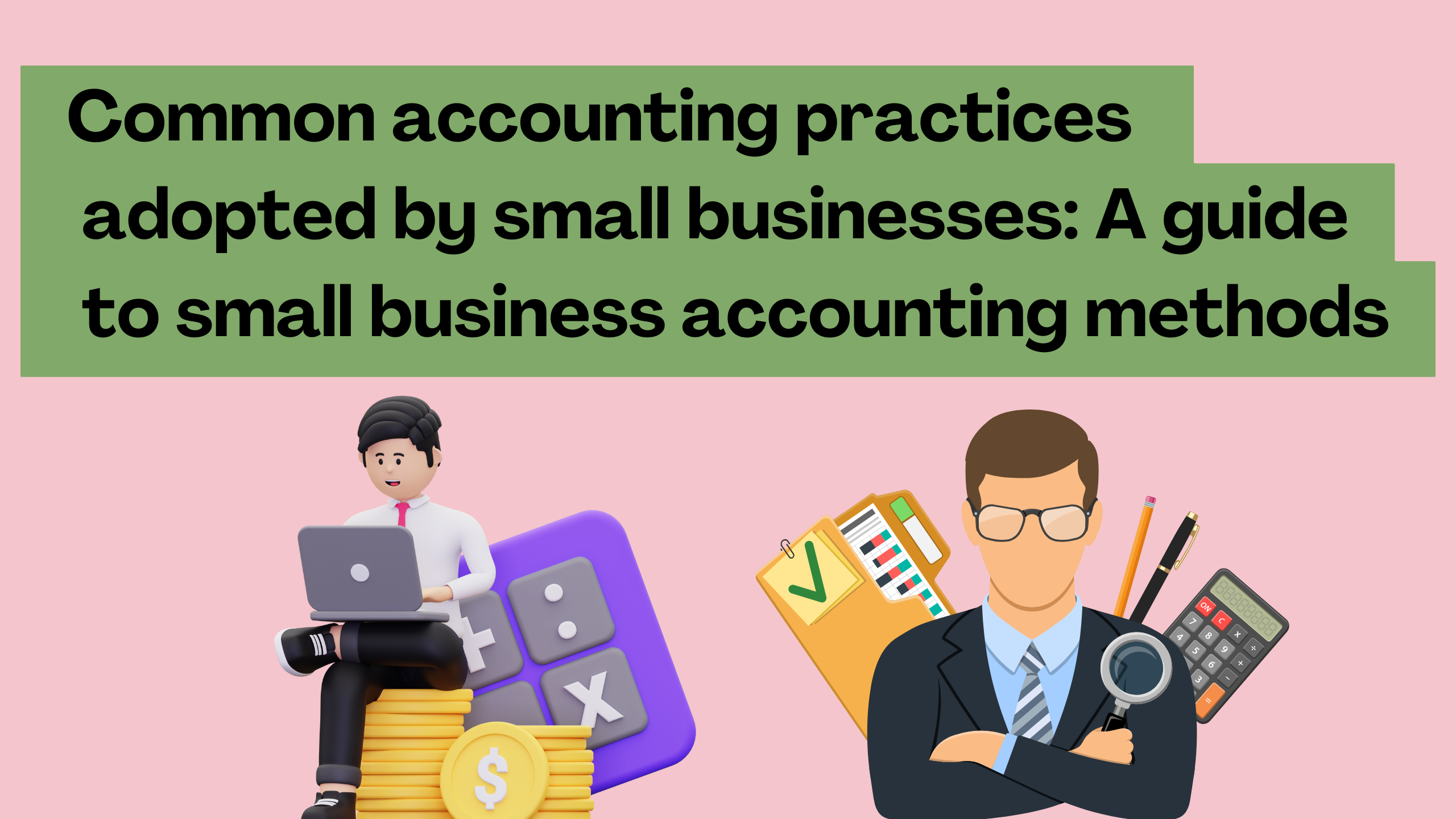Common accounting practices adopted by small businesses: A guide to small business accounting methods
- Expense Management Software Credit Cards Investing Business Solutions


Navigating Finances: A Comprehensive Guide to Small Business Accounting Methods
Welcome to our guide on the common accounting practices that empower small businesses to thrive financially. Understanding the intricacies of accounting is a key pillar for the success of any venture, and we’re here to shed light on the practices that can make a significant impact.
Cash Accounting: Keeping It Simple
Let’s start with cash accounting, a method embraced for its simplicity. In this approach, transactions are recorded when cash is exchanged. It’s like a real-time snapshot of your cash flow, making it ideal for businesses with straightforward financial structures.
Accrual Accounting: Painting the Full Picture
For those seeking a more comprehensive financial picture, accrual accounting takes the stage. Here, transactions are recorded when they occur, not necessarily when the cash changes hands. It offers a more accurate, long-term view, making it suitable for businesses with larger sales volumes.
Double-Entry Accounting: Balancing the Books
A cornerstone of accounting, the double-entry method ensures that every transaction is recorded in at least two accounts. This meticulous approach guarantees that debits and credits remain balanced, providing a holistic and accurate representation of your financial activities.
SaaS Tools: Transforming Your Accounting Experience
Now, let’s explore some game-changing SaaS tools that have revolutionized small business accounting:
1. QuickBooks Online
- Website: QuickBooks Online
2. FreshBooks
- Website: FreshBooks
3. Wave
- Website: Wave
These online platforms streamline invoicing and payment processes, ensuring accuracy and efficiency in small business accounting. They’re not just tools; they’re your financial allies.
Expense Tracking: From Receipts to Reports
Managing expenses can be a breeze with cutting-edge software:
1. Expensify
- Website: Expensify
2. Zoho Expense
- Website: Zoho Expense
3. Receipt Bank
- Website: Receipt Bank
These tools simplify expense tracking, turning what could be a tedious process into a well-organized and efficient part of your financial strategy.
Conclusion: Building a Strong Financial Foundation
Effective accounting practices, coupled with the right tools, form the bedrock of small business success. Whether you choose cash or accrual accounting, implement double-entry methods, or leverage online platforms and expense tracking tools, the goal is the same: to establish a solid foundation for financial success.
Navigate your finances with confidence, embrace these accounting practices, and utilize the powerful SaaS tools at your disposal. Your small business deserves financial success, and with the right practices and tools, you’re well on your way.
Explore these accounting tools and learn more about their features by visiting their official websites: QuickBooks Online, FreshBooks, Wave, Expensify, Zoho Expense, Receipt Bank.
https://youtu.be/W-ajzzE_upM








